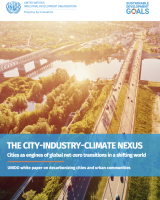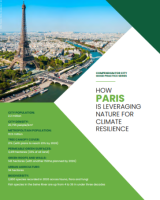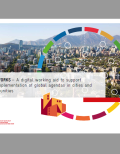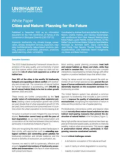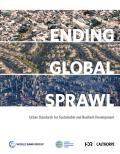Knowledge Products
The GPSC hosts a digital library featuring practical tools, reports, and case studies. Explore curated resources across thematic areas, filtering by topic or region to find the insights required to advance urban sustainability.

Compendium for City Good Practice Series: How Paris Is Leveraging Nature For Climate Resilience
This report, as part of the Compendium for City Good Practice series, highlights Paris's innovative approach to climate resilience through the strategic integration of nature into urban environments. It offers a comprehensive overview of Paris's strategy on urban nature, showcasing how the city is integrating biodiversity into planning, leveraging green spaces, biodiversity corridors, and sustainable landscaping to mitigate the impacts of climate change. The report serves as a valuable resource for cities worldwide seeking to emulate Paris's successful model of
Cities, Culture, Creativity: Learning from the Republic of Korea’s Experience
This report describes examples demonstrating the leading role that Korea can play globally and provides practical insights on the importance
Piloting Nature-based Solutions for Urban Cooling
Reducing excess urban heat and protecting populations from extreme temperatures is one of the 21st century’s key resilience and sustainability
Biodiversity in Cities - Technical Guide
In order to respond to the challenges and growing demand of counterparts, partners and populations to better integrate nature in
Cities and Nature: Planning for the Future
In preparation for the 15th Conference of Parties (COP15) of the Convention on Biological Diversity (CBD) to adopt the Global
State of Finance for Nature 2022
The State of Finance for Nature is a series that aims to quantify public and private finance flows to nature-based
She Rises: a Framework for Caring Cities
This document unpacks the elements of a city that places the economics and ethics of care at the centre. The
Ending Global Sprawl: Urban Standards for Sustainable and Resilient Development
The health and wellbeing of humankind will depend on the kind of cities we build in the next two generations



